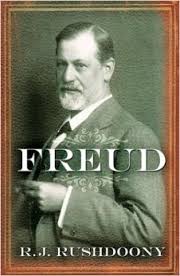Martin Selbrede’s book “Hidden in Plain Sight” isn’t a profound work of literature nor is it likely to be added to the Western Canon; nevertheless, it’s very enjoyable, and as Christian fiction goes, is relatively high quality.
To compare him to pop-writers: he’s no Steven King. Then again, in this reviewer’s opinion, he’s well above a Dean Koontz. To translate into pop-Evangelical language: He’s no Frank Peretti, but he’s much better than a Ted Dekker. That’s quite a compliment, I think, given this seems to be Mr. Selbrede’s first attempt at fiction.
The real value of his book, however, isn’t in the writing style or even in its ability to entertain.
Selbrede comes very close to managing the impossible for Christian authors, who are usually besotted with modernism, and expounds on theological principles in a fictional setting without coming across as a sermonizer. Admittedly, he comes very close in chapter 28, but he pulls out of it, and the story recovers.
He is able to accomplish this, I think, because he sticks to one theological principle and wraps the entire narrative around it.
Assuming the reader of this review knows nothing at all about Christianity, I’ll provide a quick summary of what I believe Mr. Selbrede is getting at in his novel:
———————————————————————————————————-
Christians believe God is so very big that there is nothing at all outside of Him. God is not floating around in some larger universe. He’s not surrounded by space. All space, and all things either exist within Him or are Him. This principle forms the very foundation of Reformed theology and is often referred to as the “Creator / Creature Distinction”.
Since nothing can exist unless God has created it, then as Christians, we’re obligated to believe that everything that exists is what it is, because God wants it to be that way. The second God decides that something in Creation should no longer exist, it would wink out: *poof* – just like that. Gone.
So, everything that exists is being “held” in existence by the fiat will of God Almighty!
This is very important, because it means that all the laws we experience in Creation are regularities of God’s sustaining Creative act. Christians believe God is immutable (unchanging) and thus, the ways in which He deals with His creation are unchanging (except, of course, for miracles, which are, by definition, when God does something in a way that is different from His normal operating procedures).1
So when we study the laws of physics (and every other law we observe in nature, i.e. the laws of logic, linguistic regularities, laws of biology, etc.) we are really studying how God deals with Creation.2
———————————————————————————————————-
The novel opens in a science lab where the young heroine (an attractive and brilliant red-head named Jenna – not sure how many of those there are in the world…) has just invented something amazing.
It takes most of the book to figure out what her invention is, exactly, but most importantly, it promises to provide a constant source of “free energy”, or so the bad guys think. Jenna is launched into a world of adventure and intrigue when the American government finds out about her invention, and bugs her lab, her home, her car, and is spying on everyone she knows.
Jenna meets the enigmatic Dr. Eckhardt who, you’ll have to excuse me, I imagined to be the spitting image of Dr. Rushdoony. Eckhardt acts almost like a divine figure throughout the story, using his vast fortune and intelligence to aid Jenna at key points.
I wont give away the ending or reveal too much of the plot, as the story hinges on surprise and mystery. If you like science fiction, especially that written from a Christian (and a uniquely Reformed) perspective, you’ll thoroughly enjoy this book.
A word of advice though: there is a lot of abstract science thrown around, seemingly at random. Don’t worry about trying to understand it. I’m not sure how much of it is real or plausible anyway. The theological principles, though, are real, and what the reader needs to understand (in order to follow the plot) becomes very clear. There are always non-scientists in stories like this, and eventually, one of the characters has to explain to them what’s going on.
I certainly don’t believe, for instance, that Martin Selbrede has discovered a way to reconcile difficult concepts in physics (like Heisenburg’s Uncertainty Principle and the Theory of Relativity), however, given the theological principle I’ve described, it might be possible for an enterprising young Christian physicist, like the one in his story, to accomplish extraordinary things in the near future.
And on that note, this is a very optimistic and exciting novel.
——————————————————————————————————————————————————
1. For example, God normally deals with a river by ordaining that it act according to certain law-like patterns. It flows through its channels, it stays grounded to the Earth (gravity), and each molecule of the river-water adheres to its fellows according to regular and law-like patterns (these patterns are what chemists study).
But one time in History, God decided not to work this way with a river. When the Levites had to carry the Ark of the Covenant over the river Jordan, God miraculously caused the river to halt, until they were through. So, certain normal laws were suspended, while God managed His creation in a different way, temporarily. When the priests were across, God began operating as usual again, and the river Jordan continued its normal coarse.
2. I’d like to point out two sources for further study on this issue:
See R.J. Rushdoony’s essay “The Myth of Nature” in the book “The Mythology of Science”.
Also, check out C. Paul Feronni’s excellent essay “The Reconstructionist View of Science” in “Creation According to the Scriptures”. His essay is, in my opinion, the non-fiction explanation of the theological principle that Martin Selbrede is getting at.





